Zhang Hao
Zero Shot Open-ended Video Inference
Jan 23, 2024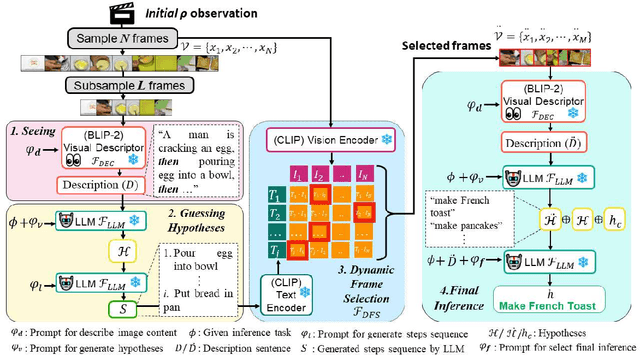
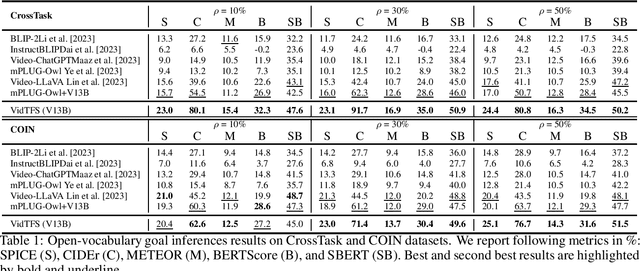
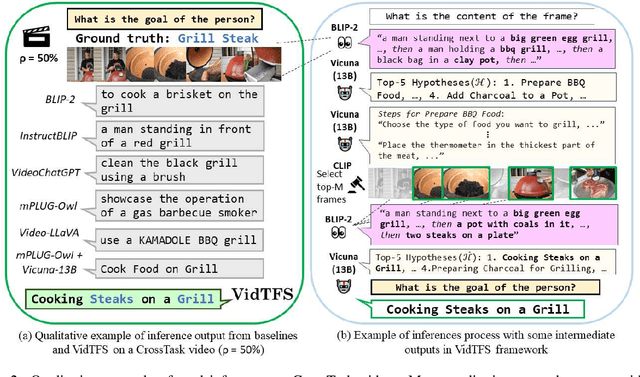

Abstract:Zero-shot open-ended inference on untrimmed videos poses a significant challenge, especially when no annotated data is utilized to navigate the inference direction. In this work, we aim to address this underexplored domain by introducing an adaptable framework that efficiently combines both the frozen vision-language (VL) model and off-the-shelf large language model (LLM) for conducting zero-shot open-ended inference tasks without requiring any additional training or fine-tuning. Our comprehensive experiments span various video action datasets for goal inference and action recognition tasks. The results demonstrate the framework's superior performance in goal inference compared to conventional vision-language models in open-ended and close-ended scenarios. Notably, the proposed framework exhibits the capability to generalize effectively to action recognition tasks, underscoring its versatility and potential contributions to advancing the video-based zero-shot understanding.
Deep Learning for MIMO Channel Estimation: Interpretation, Performance, and Comparison
Nov 05, 2019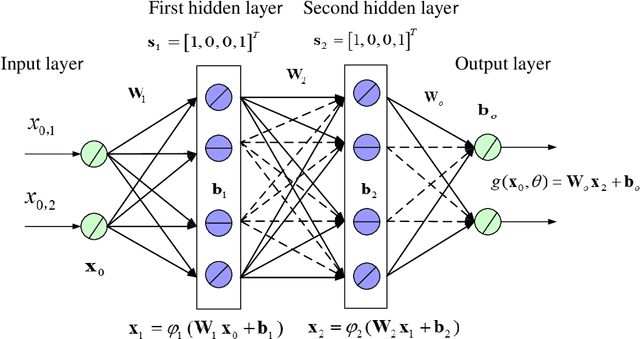
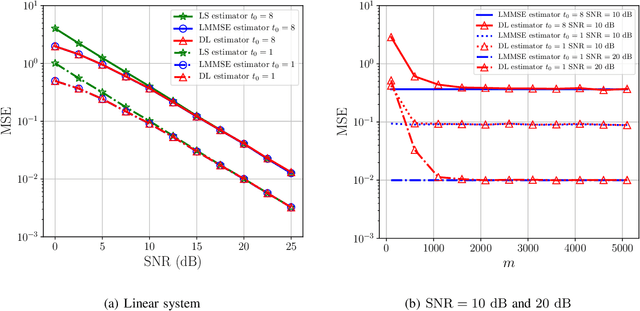
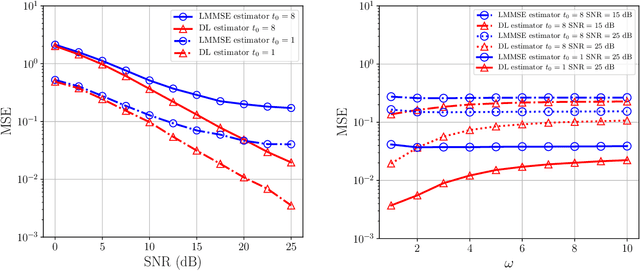
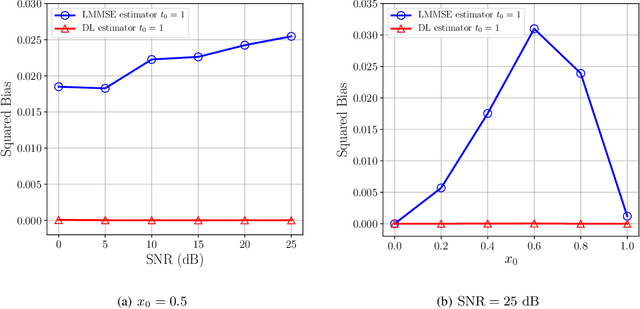
Abstract:Deep learning (DL) has emerged as an effective tool for channel estimation in wireless communication systems, especially under some imperfect environments. However, even with such unprecedented success, DL methods still serve as black boxes and the lack of explanations on their internal mechanism severely limits further improvement and extension. In this paper, we present a preliminary theoretical analysis on DL based channel estimation for multiple-antenna systems to understand and interpret its internal mechanism. Deep neural network (DNN) with rectified linear unit (ReLU) activation function is mathematically equivalent to a set of local linear functions corresponding to different input regions. Hence, the DL estimator built on it can achieve universal approximation to a large family of functions by making efficient use of piecewise linearity. We demonstrate that DL based channel estimation does not restrict to any specific signal model and will approach to the minimum mean-squared error (MMSE) estimation in various scenarios without requiring any prior knowledge of channel statistics. Therefore, DL based channel estimation outperforms or is comparable with traditional channel estimation. Simulation results confirm the accuracy of the proposed interpretation and demonstrate the effectiveness of DL based channel estimation under both linear and nonlinear signal models.
 Add to Chrome
Add to Chrome Add to Firefox
Add to Firefox Add to Edge
Add to Edge